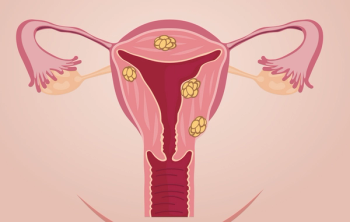
Use of circulating tumor DNA to guide adjuvant treatment planning for patients with resectable colon cancer led to fewer patients receiving chemotherapy while maintaining outcomes, according to the DYNAMICS study.

Your AI-Trained Oncology Knowledge Connection!


Use of circulating tumor DNA to guide adjuvant treatment planning for patients with resectable colon cancer led to fewer patients receiving chemotherapy while maintaining outcomes, according to the DYNAMICS study.

Pacritinib had a comparable, if not superior, safety profile over best available therapy in patients with myelofibrosis, including those with low platelet counts.

Results from the phase 2 ATLANTIS trial did not show a benefit of cabozantinib in patients with advanced urothelial carcinoma compared with the placebo, but the treatment appeared to be tolerable.

Results of the COSMIC-021 trial presented at ASCO 2022 show promise of cabozantinib plus atezolizumab for urothelial carcinoma.

Findings from the phase 3 ROMAN trial showed a significant reduction in severe oral mucositis with receipt of avasopasem manganese during chemoradiotherapy for patients with locally advanced, nonmetastatic head and neck cancer.

Prior findings showing the benefit of brentuximab vedotin plus chemotherapy vs chemotherapy alone for the treatment of patients with previously untreated stage III/IV classical Hodgkin lymphoma was supported by 6-year updated overall survival data.

Patients with EGFR exon 20 insertion–positive non–small cell lung cancer may have antitumor response with the selective EGFR inhibitor CLN-081 following multiple prior lines of treatment.

The combination of pembrolizumab plus ramucirumab resulted in better overall survival compared with the standard of care regimens despite similar response rates, according to results of a Lung-MAP substudy presented at 2022 ASCO.

The KRAS G12C inhibitor adagrasib demonstrated an objective response rate of 43% and disease control rate of 80% among patients with previously treated KRAS G12C–mutated non–small cell lung cancer.

Results of the GEMSTONE-201 study demonstrate complete responses were achieved in roughly one-third of patients with relapsed or refractory extranodal natural killer/T-cell lymphoma who were treated with sugemalimab.

The combination of ibrutinib plus the chemotherapy bendamustine and rituximab immunotherapy elicited the highest PFS rate ever reported for this patient population, according to an expert.

Nimotuzumab plus gemcitabine improved overall survival in patients with KRAS wild-type advanced pancreatic cancer, especially in those who did not need surgery for obstruction of a pancreatic bile duct.

Thierry Facon, MD, spoke about treatment combinations that have seen success in patients with multiple myeloma, as well as where future research should be focused.

Atezolizumab plus fluorouracil, leucovorin, oxaliplatin, and irinotecan resulted in a tolerable safety profile and improved progression-free survival vs the control regimen in patients with metastatic colorectal cancer.

High body mass index in patients with apparent early-stage endometrial cancer may be predictive of sentinel lymph node mapping failure and decrease overall detection rate.

Investigators indicated that comprehensive geriatric assessment could be used to determine whether older, frail patients with hematologic cancers can undergo intensive treatment with chemotherapy and whether curative treatment is viable.

In an OncView™ program, David H. Aggen, MD, PhD, Robert S. Alter, MD, Arnab Basu, MD, MPH, FACP, Mehmet Asim Bilen, MD, and Chung-Han Lee, MD, MPH, offer their expert insights for the treatment of RCC.

Chemoradiotherapy plus cisplatin administered weekly was found to be non-inferior to cisplatin once every 3 weeks for patients with high-risk locally advanced squamous cell carcinoma of the head and neck.

A de-escalated regimen of trastuzumab and pertuzumab without added paclitaxel may be an option for certain patients with HER2-positive, hormone receptor–negative early-stage breast cancer.

A biologics license application for pegfilgrastim-pbbk was accepted by the FDA for use in patients experiencing neutropenia while receiving chemotherapy.

Semi-structured qualitative interviews revealed that patients undergoing allogeneic hematopoietic stem cell transplant could benefit from peer support prior to and during transplantation.

Sara Hurvitz, MD, spoke about ongoing clinical trials in which trastuzumab deruxtecan is being investigated with the use of brain metastases.

Jaffer A. Ajani, MD, spoke about the recent approvals of nivolumab plus ipilimumab and nivolumab plus chemotherapy for patients with esophageal squamous cell carcinoma.

Results from the phase 2 ELARA trial supported an accelerated approval from the FDA for tisagenlecleucel for patients with relapsed/refractory follicular lymphoma.

The FDA has granted approval to nivolumab plus ipilimumab and nivolumab plus chemotherapy for patients with unresectable advanced or metastatic esophageal squamous cell carcinoma.

Daniel Petrylak, MD, and Donald Barry Boyd, MD, MS, review a publication presenting use of avelumab maintenance in patients with locally advanced or metastatic urothelial carcinoma in real-world practice and discuss their own experiences with the regimen.

Adverse effects were found to be similar between patients with metastatic hormone-sensitive prostate cancer who were treated with darolutamide plus androgen deprivation therapy and docetaxel vs androgen deprivation therapy and docetaxel alone.

Judd W. Moul, MD, spoke with CancerNetwork® about the latest research from the journal ONCOLOGY® on the treatment of a patients with evidence of prostate cancer despite multiple negative prognostic tests.

Expert perspectives on recent updates in the use of proteasome inhibitors for patients with multiple myeloma.

Sara Hurvitz, MD, spoke which patients would benefit most from fam-trastuzumab deruxtecan and what the next research steps will be.